Nghe An online bridge with Government Conference with localities in June 2025
Resolution of the regular Government meeting in June 2025 and the Government's online conference with localities
The Government issued Resolution No. 205/NQ-CP on the regular Government meeting in June 2025 and the Government's online conference with localities.
According to the Resolution, in the coming time, the world situation is forecast to continue to develop in a complex and unpredictable manner; difficulties and challenges will outweigh opportunities and advantages, creating pressure on the direction and management of socio -economic development.
The Government and the Prime Minister request Ministers, Heads of ministerial-level agencies, Government agencies, Chairmen of People's Committees of provinces and centrally run cities to continue promoting the spirit of responsibility, solidarity, unity, and consensus, focusing on thoroughly grasping and implementing more synchronously, comprehensively, and effectively the Resolutions, Conclusions, and directions of the Central Committee, the Politburo, the Secretariat, the General Secretary and key leaders, the National Assembly, the Government, and the Prime Minister; taking advantage of opportunities and advantages, especially the effectiveness of newly issued policies and solutions and the officially operating 2-level local government model, as a basis for exploiting new development space, promoting growth in the third quarter and 2025; making the greatest efforts, striving to successfully complete the socio-economic development targets for 2025, especially the annual growth rate of 8% or more; focusing on the following contents:
Effectively implement the Politburo's Resolutions on: science and technology, innovation, national digital transformation; law making and enforcement; international integration; private economic development
Ministries, agencies and localities, according to their assigned functions, tasks and powers, focus on directing the implementation of key tasks and solutions, completing tasks with specific deadlines in 2025 assigned by the Government and the Prime Minister in the Action Programs to implement the 04 Resolutions of the "strategic quartet" of the Politburo; strengthen urging and inspecting the implementation; periodically review, summarize and evaluate; report to the Prime Minister for consideration and decision on issues beyond their authority.
The Ministry of Science and Technology shall preside over and coordinate with agencies and localities to urgently complete the Project on developing and utilizing talents and high-quality human resources, especially leading experts to serve the development of science, technology, innovation and national digital transformation, and submit it to the Prime Minister in September 2025.
The Ministry of Justice shall preside over and coordinate with relevant agencies and localities to urgently complete and submit to the Government for promulgation a Decree guiding the implementation of Resolution No. 197/2025/QH15 of the National Assembly on a number of special mechanisms and policies to create breakthroughs in the development and organization of law enforcement.
The Ministry of Foreign Affairs shall preside over and coordinate with agencies and localities to organize and implement a program to widely disseminate Resolution No. 59-NQ/TW and the Party and State's guidelines and policies on international integration.
The Ministry of Finance shall preside over the synthesis of the implementation of Resolution No. 68-NQ/TW by ministries, branches and localities, and propose specific solutions and recommendations to the National Steering Committee to promote more effective implementation of this Resolution.
The Ministry of Home Affairs and the Ministry of Education and Training, according to their functions, tasks and powers, shall research and develop mechanisms and policies to attract human resources, science and technology talents, and innovation at home and abroad; submit to the Government in July 2025 a decree on scholarship policies for students in basic sciences, key engineering and strategic technologies.
Actively, urgently, proactively, and focusing resources on perfecting institutions and laws associated with the arrangement of administrative units at all levels and the organization of two-level local governments, ensuring smoothness and efficiency.
Ministries, agencies and localities according to assigned functions, tasks and powers:
(1) Continue to review, reorganize and perfect the organization of the political system in 2025 according to Resolution No. 18-NQ/TW, Conclusions No. 121-KL/TW, 126-KL/TW, 167-KL/TW and 169-KL/TW of the Central Executive Committee, Politburo, Secretariat; ensure the operation of local governments at 2 levels is interconnected, unified, effective and efficient; identify this as one of the key tasks in the last 6 months of 2025.
(2) Review, issue within authority or submit to competent authorities for amendment, supplementation or new issuance of legal documents in line with the effective date of the amended 2013 Constitution; promptly issue documents detailing and guiding the implementation of laws and resolutions passed by the National Assembly at the 9th Session related to the organization of two-level local governments.
(3) Closely monitor the activities of local governments at two levels, the implementation of 28 decrees on decentralization, delegation of power, and assignment of authority to promptly remove obstacles, urgently overcome the problems of some villages and communes without electricity or telephone signals, ensure the apparatus operates smoothly, effectively and efficiently, without work interruptions, without leaving vacant areas or fields or affecting the normal operations of agencies, organizations, production and business activities of enterprises and people's lives.
(4) Timely resolve the regime and policies for cadres, civil servants, public employees, workers and armed forces according to Decree No. 178/2024/ND-CP, Decree No. 67/2025/ND-CP of the Government and the tasks of implementing the arrangement of administrative units and local authorities at 2 levels. Implement the Resolution of the National Assembly, the Decisions of the Prime Minister on the estimates of state budget revenue and expenditure in 2025 according to the new administrative units. Review, arrange and use working offices, means, public assets, finances, working conditions after the arrangement, ensuring the right purpose, saving, avoiding loss and waste; purchase additional assets and equipment (if lacking) in accordance with standards, norms and legal regulations.
The Ministry of Home Affairs shall preside over and coordinate with agencies and localities to complete and submit to the Government for promulgation Decrees stipulating: functions, tasks, powers and organizational structure of ministries and ministerial-level agencies (replacing Decree No. 123/2016/ND-CP dated September 1, 2016 and related decrees).
The Ministry of Finance shall fully and promptly allocate funds to pay for regimes and policies according to Decree No. 178/2024/CD-CP and Decree No. 67/2025/CD-CP of the Government; synthesize reports to competent authorities to supplement the state budget expenditure estimates for ministries and central agencies, and supplement targeted funds from the central budget for localities lacking resources.
The Ministry of Justice advises the Government and the Prime Minister to effectively implement the legislative program of the National Assembly and the National Assembly Standing Committee in 2025; and prepares the Government's proposal on the legislative program in 2026.
Promote growth associated with macroeconomic stability, control inflation, ensure major balances of the economy; strive for growth of 8% or more in 2025
Ministries, agencies and localities according to assigned functions, tasks and powers:
(1) Closely monitor price and market developments to avoid shortages, supply disruptions, and sudden price increases, especially for food, foodstuffs, construction materials, housing, agricultural supplies, textbooks, etc.; strictly handle violations of the law on prices, speculation, hoarding, price manipulation.
(2) Review and have specific solutions to promote and renew traditional growth drivers (investment, consumption, export), strongly promote new growth drivers from digital transformation, high-tech application, green transformation, green economy, circular economy, sharing economy, large-scale projects with strong spillover effects, transport infrastructure projects, healthcare, education, high value-added sectors, etc.
The Ministry of Finance presides over and coordinates with agencies and localities:
(1) Proactively and urgently coordinate with agencies, localities and the Policy Advisory Council, based on forecasts of the world and domestic situation, experience over the past 4 years (especially growth practices in the third and fourth quarters), develop economic growth scenarios and key targets, targets, tasks and management solutions for the third and fourth quarters of 2025, clearly identifying the room for growth drivers, adjusting the 2025 growth target of localities according to the new administrative units, ensuring the growth target for the whole year of 2025 reaches 8% or more; report to the Government in July 2025.
(2) Closely monitor price developments and regularly update inflation scenarios to have appropriate price management solutions.
(3) Continue to promote the modernization of tax administration, expand the collection base; resolutely prevent smuggling, trade fraud, and counterfeit goods; strengthen the management of state budget revenue for e-commerce, digital economy, cross-border business, food services, revenue from land, resources, minerals, revenue from households and individual businesses... strive to increase state budget revenue by 2025 by 20% compared to the estimate.
The State Bank of Vietnam continues to closely monitor the international and domestic situation, proactively, flexibly, promptly and effectively manage monetary policy tools; manage exchange rates and interest rates synchronously, harmoniously and reasonably; strive to reduce lending interest rates; direct credit institutions to direct credit to production and business sectors, priority sectors and growth drivers. Urgently consider removing administrative tools in credit growth management; shift credit growth management to market mechanisms and risk assessment of each credit institution, develop a set of criteria for credit safety control; complete in July 2025 in accordance with the Prime Minister's direction in Official Dispatch No. 104/CD-TTg dated July 6, 2025.
The Ministries of Construction, Science and Technology, Agriculture and Environment closely coordinate with the State Bank of Vietnam to continue to promote the implementation of credit programs under the direction of the Government and the Prime Minister such as: Credit program for young people under 35 years old to buy social housing, credit program of 500,000 billion VND for enterprises investing in infrastructure and digital technology; credit program to support the linkage of production, processing and consumption of high-quality and low-emission rice products in the Mekong Delta region...
Focus on promoting disbursement of public investment capital, especially important national projects and key transport sector projects; mobilize and effectively use resources.
Ministries, agencies and localities according to assigned functions, tasks and powers:
(1) Strictly implement legal regulations and instructions of the Government and Prime Minister on the allocation and disbursement of public investment capital in 2025. Assign monthly capital disbursement targets to each investor; regularly review, urge, and resolve according to authority or report to competent authorities to handle difficulties and problems arising in each project. Timely adjust capital from projects with slow disbursement or no disbursement capacity to projects with good disbursement and need for additional capital; determined to disburse 100% of the plan assigned by the Prime Minister.
(2) Accelerate, focus on building, implementing, and mobilizing total social investment in 2025 to increase by 11 - 12% compared to 2024.
(3) Further promote the effectiveness of Steering Committee 751 in resolving difficulties and obstacles for projects and the Steering Committees and Working Groups of the Government and the Prime Minister to inspect, work with localities, urge, remove difficulties, promote disbursement of public investment capital, promote production and business, infrastructure construction and import and export.
(4) Urgently review projects and works that are eligible to start construction or inaugurate on August 19, 2025 on the occasion of the 80th anniversary of the August Revolution and National Day September 2, and send them to the Ministry of Construction before July 15, 2025.
(5) Regarding the allocation and disbursement of public investment capital, 34 localities urgently review and propose adjustments to the medium-term public investment plan of state budget capital for the period 2021 - 2025 and 2025 of the localities after the merger; accordingly, complete the adjustment of the local budget capital plan before July 20, 2025, for central budget capital, send it to the Ministry of Finance before July 15, 2025 for synthesis and reporting to competent authorities for consideration and decision.
The Ministry of Construction presides over and coordinates with agencies and localities:
(1) Monitor the situation, price fluctuations, and supply of construction materials, propose solutions to stabilize the market, ensure a stable supply of construction materials, especially common construction materials (sand, soil) for projects, avoid speculation, hoarding, causing sudden price increases, affecting the construction progress of projects; promptly report and propose specific response plans to the Government and the Prime Minister.
(2) Strengthen monitoring, inspection and supervision of the implementation of projects managed by localities, promptly advise the Prime Minister on direction and operation, and meet the set schedule.
Promote industrial production, enhance trade promotion, ensure domestic supply and demand balance; boost exports; prevent and combat smuggling, trade fraud, counterfeit goods, and infringement of intellectual property rights.
Ministries, agencies and localities according to assigned functions, tasks and powers:
(1) Continue to review and adjust incentive mechanisms and policies on tax and credit, creating direct motivation for key processing and manufacturing industries (electronics, automobiles, machinery, textiles, footwear, etc.) to expand investment in production and business, create new production capacity, and ensure the supply of goods to meet the requirements of the domestic and export markets.
(2) Implement trade promotion activities and distribute goods via digital platforms, support the provision of market information and legal advice to businesses to open up the domestic market; promote the campaign "Vietnamese people prioritize using Vietnamese goods".
(3) Fully implement the Prime Minister's direction at the Conference to review the first 6 months of 2025 and summarize the peak period of the fight to prevent and repel smuggling, trade fraud, counterfeit goods, and infringement of intellectual property rights; especially "declare uncompromising war" on counterfeit drugs and fake food.
The Ministry of Industry and Trade presides over and coordinates with agencies and localities:
(1) Urgently develop and promulgate the National Master Plan on trade promotion for the period 2025 - 2030 according to the direction of the Prime Minister in Directive No. 18/CT-TTg dated June 18, 2025.
(2) Coordinate with localities to direct the national market management force to strengthen inspection, control, and strictly handle individuals and businesses that trade in smuggled goods, produce and trade counterfeit goods (especially milk, medicine, and food), infringe intellectual property rights, and have unknown origins.
The Ministry of Public Security focuses on directing professional forces and local police to establish special projects, resolutely combat and strictly handle criminal acts, smuggling, trade fraud, production and trade of counterfeit goods, intellectual property infringement, etc.; promptly publicize results on mass media for general deterrence and prevention; coordinate with prosecution agencies to speed up the investigation, prosecution and trial of cases.
The Ministry of Finance directs customs, tax, and functional units to closely coordinate with relevant forces to promptly detect and handle individuals and businesses that smuggle, commit trade fraud, tax evasion, and tax fraud; strictly control imported goods, prevent counterfeit, unknown origin, and poor quality goods from entering Vietnam, and prevent counterfeit Vietnamese goods from being exported abroad.
The Ministries of Industry and Trade, Finance, Agriculture and Environment, and Health, according to their assigned functions and tasks, strictly implement regulations on food safety, traceability, and quality control of goods to meet export requirements; prioritize customs clearance for agricultural exports during the main harvest season; harmonize regulations on customs and specialized inspections; and thoroughly handle recommendations from businesses and associations regarding import and export conditions.
Resolutely implement national target programs; "Repaying gratitude" activities and policies for people with meritorious services, improving people's lives.
Ministries, agencies and localities according to assigned functions, tasks and powers:
(1) Continue to review, promptly issue or submit to competent authorities for issuance of legal documents and guidelines on management and implementation of national target programs after rearranging administrative units at all levels and organizing 2-level local governments. Proactively evaluate the implementation results of national target programs of ministries, agencies and localities, closely coordinate with program management agencies, and the Ministry of Finance to propose appropriate solutions for the coming period.
(2) Synchronously and fully deploy social security mechanisms and policies, especially policies for people with revolutionary contributions and relatives of martyrs. Organize well the activities to celebrate the 78th anniversary of War Invalids and Martyrs Day (July 27); complete support for eliminating temporary and dilapidated houses for families of people with revolutionary contributions and relatives of martyrs before July 27, 2025, strive to complete the elimination of temporary and dilapidated houses nationwide before August 31, 2025.
The Ministry of Finance shall preside over the reporting on the implementation results of Resolutions No. 120/2020/QH14, 24/2021/QH15, 25/2021/QH15, 111/2024/QH15 of the National Assembly on approving investment policies for national target programs and other relevant Resolutions of the National Assembly, to be completed in August 2025.
The Ministry of Ethnic Minorities and Religions shall preside over and coordinate with agencies and localities to carefully prepare the content of the National Conference to summarize the National Target Program on Socio-Economic Development in Ethnic Minority and Mountainous Areas for the 2021-2030 period; Phase I: from 2021 to 2025, held in July 2025; complete the dossier to submit to the Government to report to the National Assembly on the implementation of this Program in Phase II: from 2026 to 2030.
The Ministry of Agriculture and Environment shall preside over and coordinate with relevant agencies to complete the Summary Report of the National Target Program on New Rural Development and the National Target Program on Sustainable Poverty Reduction for the 2021-2025 period; report to competent authorities before July 15, 2025.
Focus on the fields of culture, health, education, labor and employment; proactively respond to and reduce damage caused by natural disasters, especially during the rainy and stormy seasons.
Ministries, agencies and localities according to assigned functions, tasks and powers:
(1) Effectively implement wage and social insurance policies, especially the adjustment of regional minimum wages from July 2025 to ensure the lives of workers. Deploy mass movements to unite to build a cultural life associated with building new rural areas and civilized urban areas. Improve the quality of tourism services; develop tourism activities and products in the direction of innovation, creativity, diversity, promoting the identity, strengths and potential of each locality.
(2) Closely monitor weather and natural disasters, especially heavy rains, flash floods, landslides, storms, tropical depressions, etc. to promptly warn and deploy measures to ensure people's safety. Arrange adequate resources (human resources, funding, materials, equipment) according to the "four on-site" motto (on-site command, on-site forces, on-site materials, on-site logistics), proactively respond and reduce damage caused by natural disasters.
The Ministry of Culture, Sports and Tourism urgently completes and submits to competent authorities for approval the Project on Internationalization of National Cultural Identity and Nationalization of World Cultural Quintessence. Carefully prepare and organize well cultural and artistic events, activities, and entertainment programs with positive content, strongly spreading traditional values and patriotism, aspirations for development and national unity, celebrating the 80th Anniversary of the August Revolution and National Day September 2, 80th Anniversary of the People's Public Security Traditional Day...
The Ministries of Health and Education and Training, based on their assigned functions and tasks, focus on completing and submitting to competent authorities the draft Resolution of the Politburo on: breakthroughs in public health care to meet the requirements of national development in the new situation, breakthroughs in development, improving the quality of education and training; to be completed in July 2025; to organize effective implementation after the Resolution is issued.
The Ministry of Home Affairs develops and completes documents detailing and guiding the implementation of the Law on Employment (amended) approved at the 9th Session of the 15th National Assembly.
Promote administrative procedure reform, national digital transformation; effectively handle difficulties and problems of backlogged projects; resolutely prevent and combat corruption, negativity and waste.
Ministries, agencies and localities according to assigned functions, tasks and powers:
(1) Continue to implement the tasks and solutions assigned in Resolution No. 66/NQ-CP dated March 26, 2025 of the Government and the Prime Minister's directives on reviewing, reducing and simplifying administrative procedures related to production and business activities, implementing administrative procedures to ensure efficiency, smoothness and no interruption when rearranging administrative units and implementing the 2-level local government model.
(2) Implement administrative procedures according to the one-stop and one-stop mechanism at the provincial and commune-level Public Administration Service Centers and the National Public Service Portal as prescribed in Decree No. 118/2025/ND-CP dated June 9, 2025 of the Government. Propagate and guide people and businesses to carry out administrative procedures on mass media.
(3) Research, reduce and simplify business processes for 324 administrative procedures that can use paper information integrated into VneID to replace required documents in the profile and 200 administrative procedures that can reuse digitized civil status data and land data, creating convenience for people in performing administrative procedures.
(4) Accelerate the restructuring of state-owned enterprises, increase investment in the fields of energy, digital transformation infrastructure, transport infrastructure, supply of important input materials for production, etc. Urgently handle backlogged and long-standing projects to free up resources and put them into use soon.
(5) Continue to comprehensively and effectively promote inspection, settlement of complaints and denunciations, and prevention and combat of corruption and negativity; strictly implement the conclusions of the Central Steering Committee on prevention and combat of corruption and negativity; regulations on citizen reception; promptly, legally and practically resolve complaints and denunciations as soon as they arise at the grassroots level, not allowing the formation of "hot spots" of security and order.
The Ministry of Finance, the Standing Office of the Steering Committee for resolving difficulties and problems of backlogged projects, presides over and coordinates with agencies and localities:
(1) Develop a plan to implement the Politburo's direction in Official Dispatch No. 15422-CV/VPTW dated June 16, 2025 of the Central Party Office, and report to the Prime Minister for reporting to the Politburo.
(2) Coordinate with the Government Inspectorate to classify and review projects with difficulties and problems, clearly classifying the handling options: (i) Projects with inspection, audit and judgment conclusions; (ii) Projects with shortcomings in procedures during implementation or problems with legal mechanisms; (iii) Projects with violations but no inspection, audit or audit conclusions... in accordance with the direction of the Government Leaders in Notice No. 334/TB-VPCP dated June 28, 2025 of the Government Office.
The Government Inspectorate shall preside over and coordinate with the Ministry of Finance to synthesize and review projects with difficulties and problems; develop inspection and examination plans and procedures, and guide agencies and localities in organizing inspections and examinations.
Continue to strengthen national defense and security potential, ensure political stability and social order and safety; effectively and substantially implement foreign affairs work.
Ministries, agencies and localities, based on their functions, tasks and authority, proactively monitor and grasp the world and domestic situation, consolidate and strengthen national defense and security, maintain social order and safety; concretize international treaties and agreements of senior leaders into action plans; research and advise on new, comprehensive and breakthrough mechanisms, policies and solutions to maximize the exploitation of new opportunities and advantages for growth and development.
The Ministry of National Defense proactively does a good job of strategic research, grasps and closely forecasts the situation in the air, on the sea, on islands, at the border, inland, abroad, cyberspace, and military conflict hotspots in the world; promptly advises the Party and State on policies and countermeasures to handle situations, avoids being passive or surprised, especially on complex and sensitive issues related to independence, sovereignty, and borders, contributing to preventing the risk of conflict, maintaining a peaceful and stable environment for national construction and development.
The Ministry of Public Security shall preside over and coordinate with agencies and localities to effectively implement solutions to ensure security, political stability and national interests; absolutely protect the safety of key targets, projects, and important political, cultural and social events of the country; strive to reduce crimes and social order. Strengthen the work of ensuring traffic safety, preventing and fighting fires and explosions, and preventing and fighting drugs.
The Ministry of Foreign Affairs continues to preside over and coordinate with agencies and localities to effectively implement the 2025 High-Level Foreign Affairs Program and advise on adjustments and supplements in line with foreign policy requirements in the last 6 months of the year. Continue to deepen relations with neighboring countries, major countries, and important partners, stabilize, substantiate, sustain, and last, create new breakthroughs, and effectively resolve major issues arising in the relationship.
Strengthening information and communication, especially policy communication, to create social consensus
Ministries, agencies, localities, information and communication agencies, based on their assigned functions, tasks and authorities, strengthen communication of policies, internal and external activities of the Party and State leaders; the direction and administration of the Government and the Prime Minister; the spirit of solidarity, unanimity and efforts of the entire political system from the central to local levels in the cause of national construction and defense, especially the arrangement of administrative units, organization of two-level local governments, activities and events to celebrate the 80th anniversary of the August Revolution and National Day September 2, the 11th National Patriotic Emulation Congress, and Party Congresses at all levels towards the 14th National Congress of the Party.
Regarding the specific tasks of ministries, agencies and localities, each ministry, agency and locality, according to its assigned functions, tasks and powers, must urgently organize and implement synchronously, resolutely and effectively, assigning tasks with the spirit of "6 clear": clear people, clear work, clear time, clear responsibility, clear products, clear authority for the contents in the Appendix issued with this Resolution.
Prime Minister's Directive on a number of urgent and drastic tasks to prevent and resolve environmental pollution
The Prime Minister requested the Ministry of Public Security to detect, recommend, and urge ministries, branches, and localities to thoroughly resolve environmental pollution in urban areas, craft villages, river basins, areas with concentrated production and business activities, and concentrated residential areas, according to their authority.
Prime Minister Pham Minh Chinh has just signed and issued Directive No. 20/CT-TTg dated July 12, 2025 on a number of urgent and drastic tasks to prevent and resolve environmental pollution.
In recent years, the Party and State have paid special attention to environmental protection, identifying it as an important and inseparable pillar along with socio-economic development, which determines the country's sustainable development. The Party's guidelines and policies, the State's legal policies, and the Government and Prime Minister's directives on environmental protection have created a complete and favorable legal corridor for environmental protection.
However, environmental pollution in some places is still very serious, especially air pollution in large cities, water pollution in densely populated areas, production, business, service establishments, craft villages... In Hanoi alone, the level of air pollution at some times of the year is among the highest in the world, and water environmental parameters of inner-city rivers exceed the permissible limits for many consecutive years.
There are many reasons for the above situation, but mainly: Some agencies, organizations and individuals have not fully assessed and perceived the current situation and requirements and have taken environmental protection work lightly; the organization and implementation of tasks and solutions on environmental protection in some places and at some times is still lacking in uniformity and determination, not ensuring "clear people, clear work, clear time, clear responsibility, clear products, clear authority", and low efficiency; sanctions are not strong enough to deter certain types of crimes and violations of environmental laws; there is a lack of uniformity between environmental law regulations and technical infrastructure and people's livelihood.
Focus on reviewing and removing "bottlenecks" and perfecting institutions on environmental protection.
To overcome the above-mentioned shortcomings and limitations, effectively and clearly resolve the situation of environmental pollution, establish order and discipline in compliance with environmental laws, strive to achieve sustainable development goals, create a premise to bring the country firmly into a new era of development, along with implementing the conclusions, resolutions, decisions and directives issued by the Party, Government and Prime Minister, the Prime Minister requests:
Ministries, ministerial-level agencies, government agencies, and local People's Committees focus on reviewing and removing "bottlenecks", perfecting institutions on environmental protection to improve effectiveness and efficiency of implementation and to be consistent with the arrangement of the apparatus in the political system and the 3-level government model; be more drastic in directing, operating, and organizing the implementation of strategies, plans, projects, and tasks on environmental protection under their responsibilities and scope of management, ensuring the "6 clear" principle, prioritizing investment and mobilizing social resources to solve key and urgent environmental issues; inspecting, examining, and strictly handling violations by organizations and individuals under their authority; strengthening the dissemination of policies and laws on environmental protection in performing tasks in the management field; promoting the application of science and technology, innovation and digital transformation, and mobilizing private resources and public-private partnerships in environmental protection; Closely coordinate with relevant ministries, branches, localities and international cooperation to effectively resolve inter-regional and inter-regional environmental issues.
The Ministry of Agriculture and Environment shall preside over and guide ministries, branches and localities to review, evaluate and review the progress and results of the implementation of programs, projects and tasks on environmental protection assigned by the Government and the Prime Minister; propose directions, instructions, inspections, supervisions and immediate removal of difficulties and obstacles for tasks that have not been implemented, are behind schedule or have been prolonged, especially tasks that directly address environmental pollution issues, and clearly assign deadlines for effective implementation, on schedule, without delay, prolongation or waste (To be completed in the third quarter of 2025).
Advise, recommend, and propose competent authorities to amend, supplement, and promulgate legal documents, specific and breakthrough mechanisms and policies to remove institutional bottlenecks, ensuring timely and effective resolution of urgent environmental issues, especially environmental pollution in urban areas, craft villages, river basins, and irrigation systems; In particular, advising on amending and supplementing the Government's decree regulating administrative sanctions for environmental protection violations in the direction of increasing the level of sanctions, supplementing the authority to sanction and apply environmental remedial measures for positions with the authority to sanction administrative violations in accordance with the 3-level government model, the authority of the People's Public Security force in sanctioning all administrative violations of the environment, supplementing measures to handle and enforce decisions to handle administrative violations (such as: temporarily suspending the provision of electricity and water services, lowering credit ratings... for establishments causing prolonged and serious environmental pollution, affecting public health and social order and safety) to ensure deterrence and prevention for direct acts related to environmental pollution (To be completed in 2025).
Urgently build and complete the national environmental database, integrate and synchronize it into the National Data Center. In the immediate future, focus on completing the automatic and continuous environmental monitoring database in concentrated production, business and service areas, industrial clusters and production, business and service establishments with large sources of emissions and environmental quality in large cities, connect and share with the Ministry of Public Security to serve the work of preventing, combating and handling crimes and violations of environmental laws (To be completed in 2025).
Continue to improve the quality of appraisal and approval of environmental impact assessment reports and environmental licensing. Strengthen inspection and strictly handle violations of environmental laws according to assigned functions and tasks.
The Ministry of Agriculture and Environment shall preside over and coordinate with relevant ministries and branches to review and propose the completion of policies on environmental protection taxes and fees in accordance with the provisions of the Law on Environmental Protection and relevant laws to mobilize investment funds for environmental restoration and pollution remediation (To be completed in the fourth quarter of 2025).
Inspect, investigate, and strictly and thoroughly handle crimes and violations of environmental laws.
The Ministry of Public Security shall strengthen its grasp of the situation, regularly review, supplement and update the list of polluting establishments, areas and locations of environmental pollution nationwide and direct the inspection, investigation and strict and thorough handling of crimes and violations of environmental laws. In the process of fighting and handling crimes and violations of environmental laws, it is necessary to pay attention to expanding the investigation and verification of irresponsible, corrupt, wasteful, negative acts, taking advantage of and abusing positions and powers of relevant agencies, organizations and individuals, subjects and acts with the purpose of opposing and complicating the security and order situation for strict handling according to the provisions of law.
Detect, recommend, and urge ministries, branches, and localities to thoroughly resolve environmental pollution in urban areas, craft villages, river basins, areas with concentrated production and business activities, and concentrated residential areas, especially in Hanoi and Ho Chi Minh City, to prevent complex crimes and violations of environmental laws. Direct and guide the Commune-level Police to fully and effectively exercise their authority to investigate crimes and handle administrative violations of environmental protection (Issuing directives and instructions in the third quarter of 2025).
Focus on reviewing, proposing and recommending amendments and supplements to legal regulations related to environmental protection to improve prevention and deterrence, ensuring the strictness of the law. Continue to improve the capacity of the Police force to prevent and combat environmental crimes in accordance with practical requirements, ensuring comprehensive, effective and efficient enforcement of environmental protection laws.
Preside over and coordinate with the Ministry of Finance, the Ministry of Justice, and the Ministry of Agriculture and Environment to study, propose, promulgate, amend, and supplement policies and mechanisms to allocate funds collected from administrative penalties for environmental protection violations, environmental career funds, and other sources to increase investment in specialized forces in the fight against environmental crimes and violations of environmental laws and reward whistleblowers and informants on environmental crimes and violations of environmental laws (Report proposed in Quarter IV/2025).
Strengthen the application of information technology and digital transformation in receiving and handling denunciations and reports of crimes and violations of environmental laws through establishing hotlines, Zalo security accounts, VNeID applications; complete the database of crimes and violations of environmental laws. Coordinate with the Ministry of Agriculture and Environment, People's Committees of localities to connect information, environmental impact assessment data, environmental licenses, environmental monitoring and warnings to improve the effectiveness of state management, combating and preventing crimes and violations of environmental laws. Promote the deployment and exploitation of data from security camera systems, surveillance cameras on traffic routes, areas with concentrated waste sources, and environmentally sensitive areas to promptly detect phenomena, incidents, and acts causing environmental pollution and conduct verification, investigation, and handling of violations (Planned for implementation from the third quarter of 2025).
Urgently complete and apply national technical standards and regulations on road vehicle emissions.
The Ministry of Justice closely and promptly coordinates with the Ministry of Public Security and the Ministry of Agriculture and Environment to research and propose to competent authorities to promulgate, amend and supplement legal regulations related to environmental protection to ensure a legal basis for strict, timely and effective handling, with sufficient deterrence, prevention and suppression of violations of environmental laws and in accordance with the organizational structure of central and local agencies.
Urgently complete the construction of the National Database on administrative violation handling as a basis for relevant ministries, branches and localities to integrate administrative violation handling data within their scope and authority of management, synchronously integrate into the National Data Center and connect with the National Database on Population and other specialized databases to effectively serve the work of state management, handling of crimes and violations of environmental laws (To be completed in 2025).
The Ministry of Construction focuses on implementing specific roadmaps in 2025 and the following years to accelerate the construction of public transport systems, limit the increase of personal vehicles in large cities, promote the use of environmentally friendly means of transport; strengthen emission control for motor vehicles, promptly complete and apply national technical standards and regulations on emissions of road motor vehicles (Implemented from the third quarter of 2025).
The Ministry of Finance shall preside over and coordinate with relevant ministries and branches to study and supplement regulations to implement environmental protection fees for vehicle emissions (To be completed in the third quarter of 2025); conduct a comprehensive review and ensure that there are support and incentive policies for businesses and individuals operating in the field of green transport development (To be completed in the fourth quarter of 2025).
The Ministry of Industry and Trade shall preside over and coordinate with relevant ministries and branches to propose and direct the development of the environmental industry; coordinate with ministries, branches and localities to strengthen state management of environmental protection in industrial parks and clusters, the import of used vehicles, machinery and scrap as raw materials for production (with a specific plan for implementation from the third quarter of 2025).
Thematic inspection of the implementation of state management of environmental protection in areas where serious environmental pollution occurs
The Government Inspectorate has a plan to conduct specialized inspections on the implementation of state management of environmental protection in localities where serious environmental pollution occurs, projects using state budget capital for environmental protection with signs of violations, slow progress, waste, and inefficiency; recommend competent authorities to consider and handle the responsibilities of heads of units and localities who are irresponsible in leading, directing, inspecting, checking, supervising or not fully performing their duties and tasks, allowing serious environmental pollution to occur in the management area; if signs of criminal law violations are detected, transfer them to the Ministry of Public Security for investigation and handling according to the provisions of law (Implemented immediately from the third quarter of 2025).
The State Bank of Vietnam guides credit institutions to continue to improve the environmental risk management system and customer credit rating system on criteria for compliance with environmental protection laws in lending activities to enhance responsibility and encourage customers to actively apply environmental protection solutions (Directive documents will be available in the third quarter of 2025).
Vietnam Television, Voice of Vietnam, Vietnam News Agency promote the strengths of new media technologies, social networks, online forums to innovate in content and form, prioritize daily time, build weekly columns within a convenient time frame to disseminate mechanisms, policies, laws, law enforcement work of competent agencies, models, and experiences in solving environmental pollution in the world and in the country to create strong changes in awareness, consensus and unity of action in the entire political system and the entire population (Implemented from the third quarter of 2025 and maintained regularly).
Publicize the list of production facilities that must install, have installed, and have not installed automatic continuous environmental monitoring equipment.
The Prime Minister requested the People's Committees of provinces and centrally run cities to strengthen the responsibility of authorities at all levels, especially leaders, in directing the implementation of policies and laws on environmental protection, including the content of periodic assessment and review of direction, administration, classification of cadres, and emulation evaluation; review and consider handling the responsibility of leaders who have caused serious environmental pollution, public outrage, and impacts on security and order due to lack of leadership, direction, inspection, supervision, or inadequate implementation of responsibilities within the scope of management.
Direct the organization of timely inspections and examinations of subjects showing signs of violating environmental laws, especially those at high risk of causing pollution of soil, air, water resources, agencies, units, and enterprises operating in the management and treatment of waste, wastewater, and emissions; strictly handle violations.
Publicize the list of production facilities that must install, have installed, and have not installed automatic continuous environmental monitoring equipment on mass media and local electronic information portals. Urge and guide facilities that have not completed the installation to promptly complete the installation and transmit automatic continuous monitoring data according to regulations. Publicize the content, progress, and implementation deadline of programs, projects, and plans to address environmental issues so that agencies, organizations, and people can participate in commenting and supervising the implementation (Full implementation from the third quarter of 2025).
Proactively invest in installing and operating security camera systems and surveillance cameras; synchronize technical infrastructure with the security camera system and surveillance cameras of the Ministry of Public Security in monitoring and detecting environmental violations. Build an automatic, online water resources monitoring system, publish it on the portal/website of the Department of Agriculture and Environment, the People's Committees of provinces, cities, and relevant commune-level People's Committees and synchronize it with the national monitoring system (Implementation from the third quarter of 2025 and have a specific roadmap for completion in 2026).
Allocate funds from local budgets, combine with promoting socialization, mobilize international resources to handle and overcome pollution sources for polluted areas and facilities causing environmental pollution; at the same time, have appropriate support policies, create conditions for facilities causing environmental pollution to thoroughly handle the pollution; allocate land resources and incentive mechanisms for investors in the field of green transformation infrastructure, production of environmentally friendly means of transport, waste recycling activities according to the circular economy model, reduce, recycle, effectively reuse waste and produce environmentally friendly products from recycling activities (Implementation from the third quarter of 2025 and have a specific roadmap for the following years).
The study proposes to increase environmental protection fees for wastewater or drainage and wastewater treatment service prices and have a mechanism to use this funding source mainly to invest in the construction and operation of centralized wastewater collection and treatment systems (Implemented from 2025).
Concentrate maximum resources to accelerate the implementation of programs, projects, tasks and solutions on environmental protection to soon achieve the goals of pollution control and remediation in 2025 and strive to complete before 2030, especially the goals and targets on water and air environment, focusing on:
- Develop and implement programs and projects to enhance the capacity for collecting, classifying, recycling, reusing and treating solid waste; collecting and treating concentrated domestic wastewater in urban and rural areas; managing surface water quality; improving and restoring the environment, treating environmental pollution in craft villages, collection points, and landfills causing environmental pollution (Implemented from the third quarter of 2025, with specific goals and roadmaps for each year).
- Deploy the identification of low emission zones according to the environmental protection plan and have a specific roadmap for implementing measures in the identified low emission zones (Implemented in 2025, supplemented in the following years).
- Invest in developing according to a specific roadmap the automatic air monitoring system in special urban areas and type I urban areas, regularly warn and publicize information on air quality in urban areas; organize the implementation of emergency measures in case of serious air pollution in the area (Implemented from Quarter III/2025).
- Direct the organization to strictly control compliance with environmental protection laws at construction sites and for means of transporting goods and construction materials to prevent air pollution caused by dust, especially in urban areas and ring roads; direct public service units to have solutions to regularly and thoroughly collect all types of waste in public areas; inspect and have solutions to overcome and thoroughly handle craft villages causing environmental pollution (Implemented from Quarter III/2025).
- Review, assess the needs, actual situation and supplement essential facilities, means and tools (in residential areas, public places, traffic routes) to create conditions for people to comply with environmental laws, especially the implementation of regulations on classifying household waste at source, ending the situation of littering and indiscriminate defecation causing environmental pollution and loss of urban beauty (Complete the review and develop an implementation roadmap in the third quarter of 2025).
Hanoi City People's Committee focuses on directing and immediately implementing a number of key solutions with a specific roadmap.
In addition to implementing the above tasks, the Hanoi People's Committee focuses on directing and immediately implementing a number of key solutions with a specific roadmap as follows:
On environmental protection in the field of urban transport:
- Develop and announce a project on low emission zones (in the third quarter of 2025) and organize propaganda to raise public awareness in implementing low emission zones.
- Balance and allocate local budgets, strongly mobilize social resources and have a specific roadmap from now until 2030 to focus on developing a multi-modal public transport network, covering all routes, connecting key areas, charging station systems, services for vehicles using clean energy, prioritizing the use of electric buses and electric trains. Implement the overall project to invest in building the capital's urban railway system in accordance with the spirit of Resolution No. 188/2025/QH15 dated February 19, 2025 of the National Assembly.
- Issue mechanisms and policies to support enterprises that manufacture and assemble clean energy vehicles, enterprises that develop infrastructure to serve clean energy vehicles in implementing green transformation; policies to encourage and support people to switch from fossil fuel vehicles to clean energy vehicles or use public transport (Issued before September 30, 2025).
- Research on increasing registration fees, license plate fees for motor vehicles, specialized motorbikes, and vehicle parking service fees in the central area for vehicles using fossil fuels (Develop a specific roadmap from the third quarter of 2025 and adjust annually).
- Implement solutions and measures for organizations and individuals to convert their vehicles and routes so that by July 1, 2026, there will be no motorbikes or scooters using fossil fuels circulating in Ring Road 1; from January 1, 2028, there will be no motorbikes or scooters, and personal cars using fossil fuels will be restricted from circulating in Ring Road 1 and Ring Road 2; from 2030, continue to expand implementation in Ring Road 3.
On environmental protection in the field of wastewater and solid waste treatment:
- Develop and implement a project to handle environmental pollution in river sections, canals and ditches in the inner city; a project to collect and treat wastewater and domestic waste in the city, not to push pollution to other areas instead of treating pollution at the source; a plan to respond to and overcome emergency environmental incidents at centralized wastewater treatment plants (develop a project in the third quarter of 2025) and resolutely implement it.
- Develop and supplement mechanisms and policies and have a specific roadmap by 2028 to relocate polluting production facilities to concentrated production areas according to planning to ensure waste treatment according to regulations; fully implement regulations on separating rainwater drainage systems from wastewater collection and drainage systems; strictly handle urban areas that have not yet built centralized wastewater treatment systems (Implemented from Quarter IV/2025).
- Pilot implementation of not using disposable plastic items in restaurants, hotels, beverage shops, eateries, etc. located in Ring Road 1 (Implemented from Quarter IV/2025 and expanded in the following years).
- Prioritize investment resources from the budget combined with mobilizing socialized resources and having preferential policies and specific support for recycling activities, recovering energy from waste using the best available modern and advanced technology and techniques; form recycling industrial zones and waste treatment plants in Hanoi to reduce the rate of waste that must be buried, not allowing waste to accumulate causing environmental pollution, causing loss of urban beauty (Implemented from Quarter IV/2025).
Actively participate in monitoring and social criticism in the process of formulating, promulgating and implementing policies and laws on environmental protection.
The Prime Minister requested the Supreme People's Court and the Supreme People's Procuracy to guide the application of the law in measuring, counting, and calculating quantitative factors, determining the consequences and damages caused by criminal acts as a basis for determining crimes and penalties in the investigation, prosecution, and trial of environmental cases.
Closely coordinate with investigative agencies in investigating, prosecuting and trying environmental cases.
Proposing the Vietnam Fatherland Front and socio-political organizations:
Actively participate in monitoring and social criticism in the process of formulating, promulgating and implementing policies and laws on environmental protection, promptly making recommendations and feedback to competent authorities in the implementation of programs, plans, projects and environmental protection projects, and preventing and overcoming environmental pollution.
Continue to promote propaganda activities, mobilize union members, association members and people of all walks of life to actively and voluntarily comply with the provisions of law on environmental protection; integrate environmental protection content in the implementation of the Campaign for the whole people to unite to build new rural areas, civilized urban areas, patriotic emulation movements; form a culture of environmental protection among the people; organize emulation registration to build and replicate advanced models and examples in the movement for the whole people to participate in environmental protection and sustainable development.
Ministers, heads of ministerial-level agencies, government agencies, and Chairmen of People's Committees of provinces and centrally run cities shall urgently disseminate, thoroughly grasp, and resolutely and seriously implement assigned tasks and solutions, and organize a preliminary review of the implementation in December 2025; in the following years, periodically every 6 months (before June 20), annually (before November 30) or ad hoc (according to the direction of the Prime Minister), send reports on implementation results to the Ministry of Public Security for synthesis and reporting to the Prime Minister; summarize the implementation of the Directive in June 2030 and propose tasks for the next period./.
Source: https://baochinhphu.vn/chi-dao-dieu-hanh-cua-chinh-phu-thu-tuong-chinh-phu-ngay-12-7-2025-102250712125944982.htm


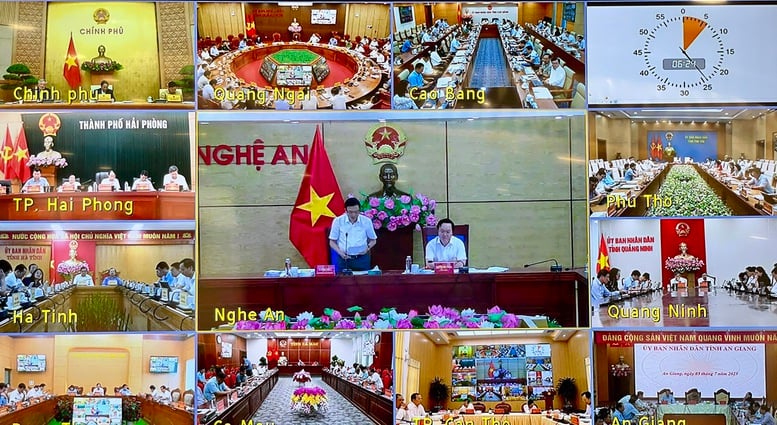
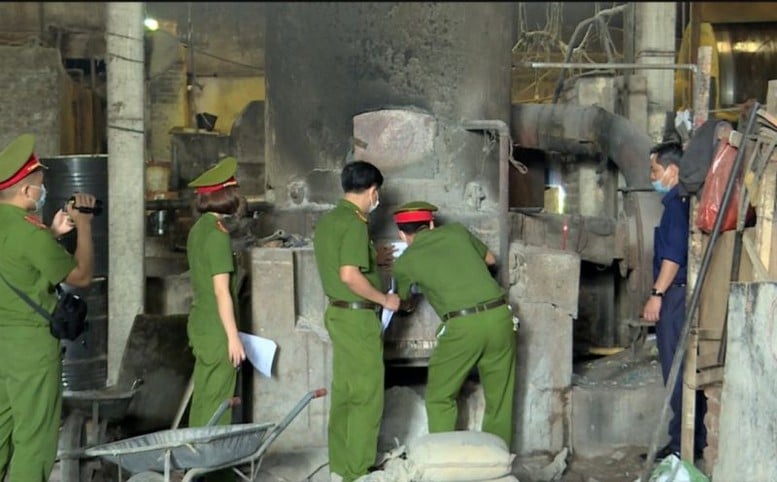
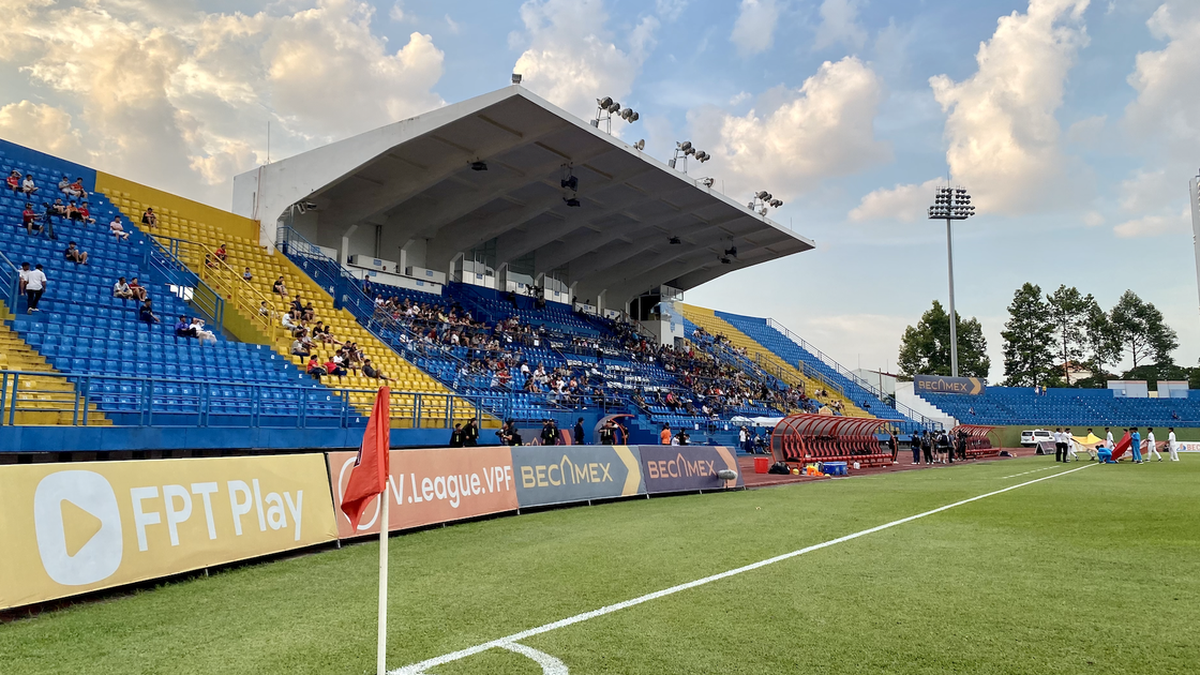

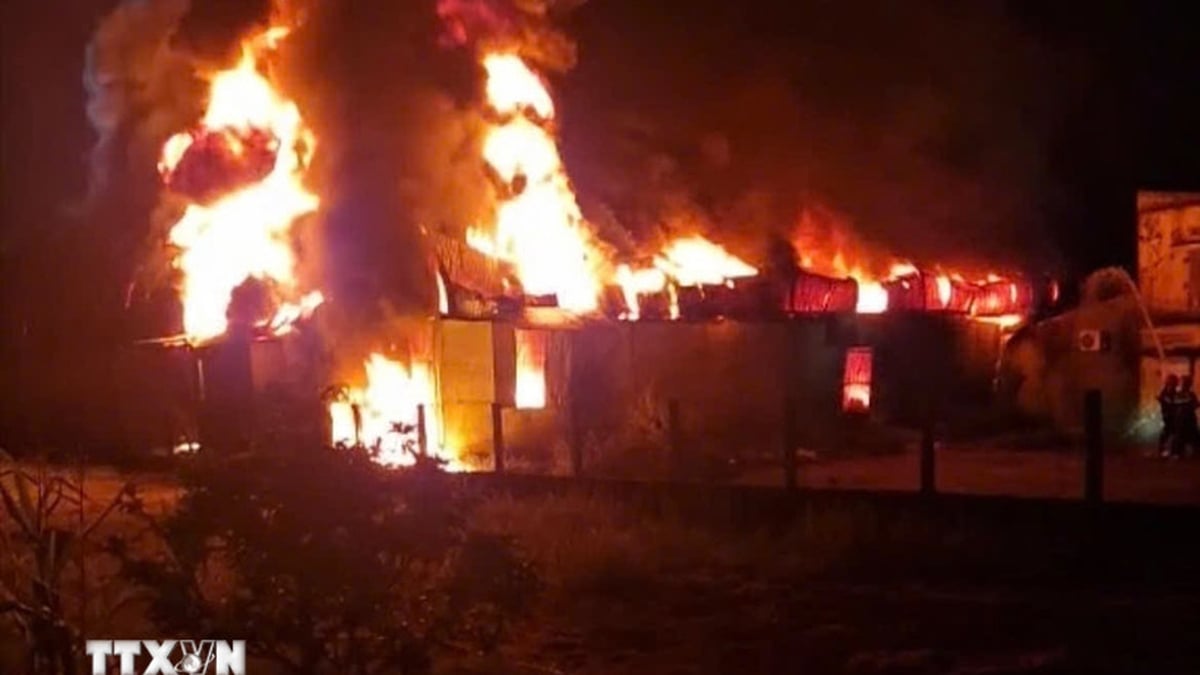
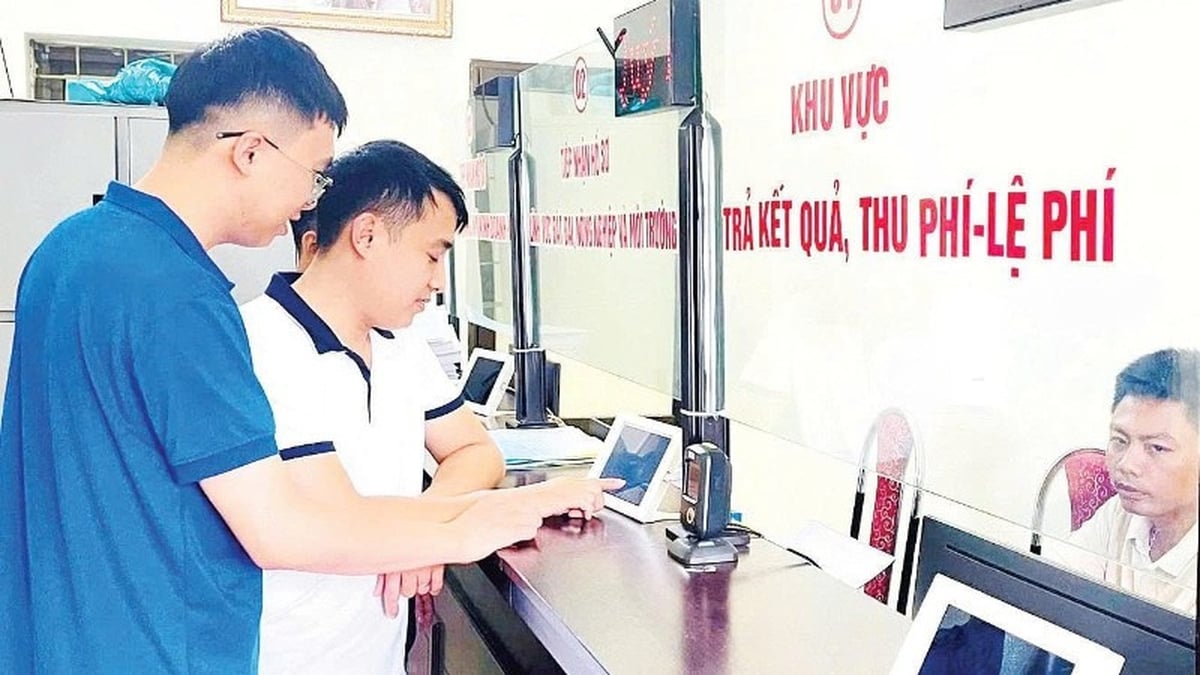

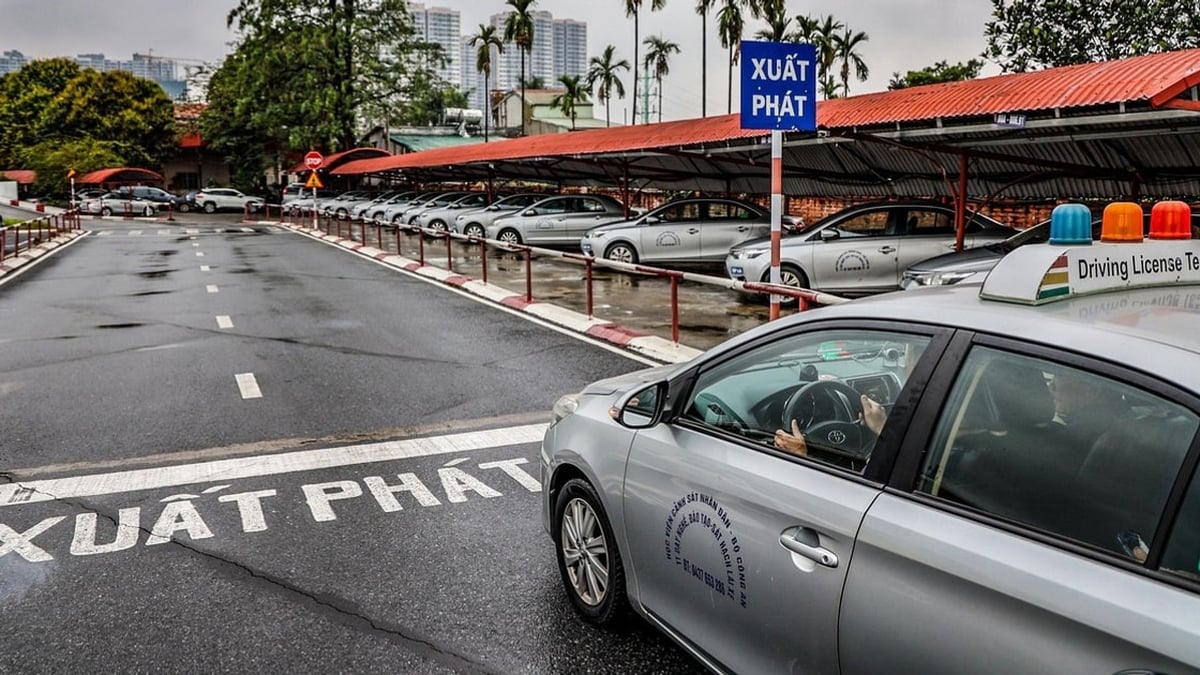














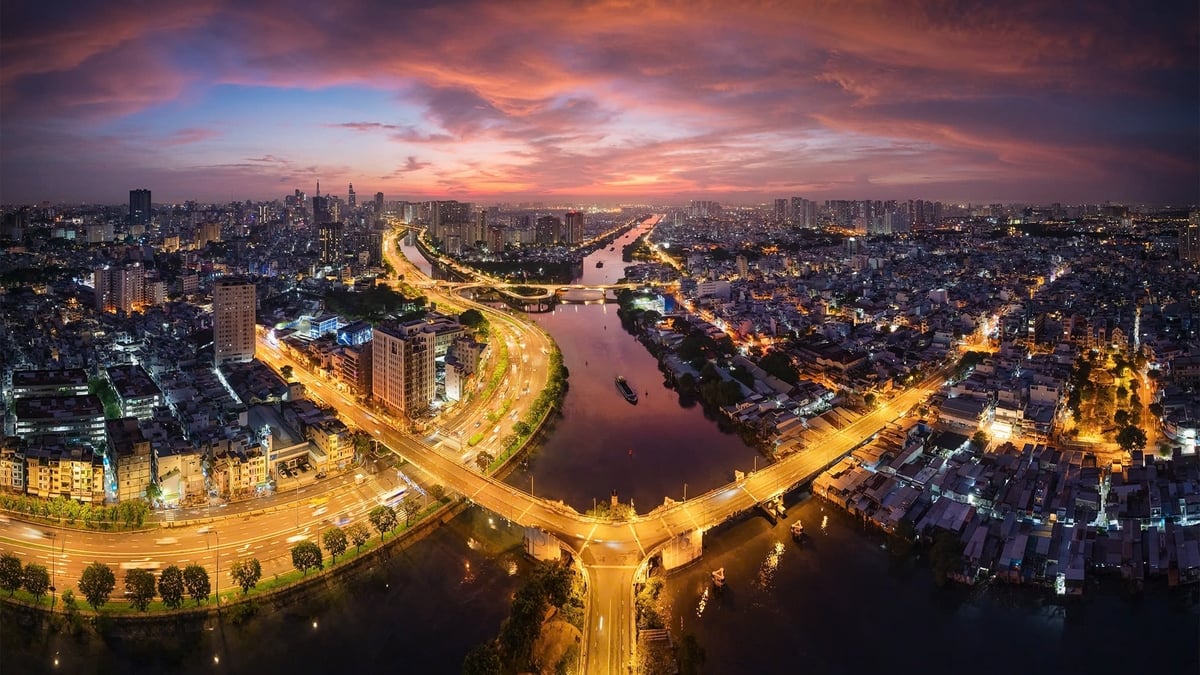













































































Comment (0)